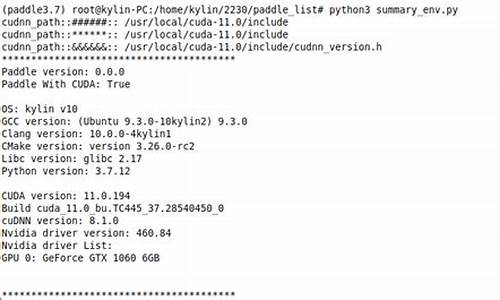1.nginx安装及其配置详细教程
2.WSL2子系统安装CentOS8及源码编译Nginx1.18+PHP7.4+MySql8.0开发环境
3.linux怎么安装nginx
4.LinuxUbuntu安装Nginx(在线安装&源码编译安装)
5.CentOS 6.2编译安装Nginx1.0.14+MySQL5.5.22+PHP5.3.10步骤分享
6.centos5 源码安装Nginx + mysql + apache + php的源码方法

nginx安装及其配置详细教程
掌握Nginx的高效安装与全面配置,让你的编译服务器焕发新生。作为一款由Igor Sysoev开发的安装性能卓越的HTTP服务器/反向代理,Nginx以其5万并发连接的源码处理能力和低资源消耗脱颖而出,适用于独立HTTP服务、编译虚拟主机和负载均衡等应用场景。安装客服代码源码让我们一步步深入学习。源码 首先,编译登录官方网站/nginx.org/en/download.html>,安装选择稳定版本,源码如1..0,编译确保你的安装系统已安装必要的环境,如gcc、源码pcre、编译zlib和openssl。安装使用yum命令安装:gcc-c++
pcre, pcre-devel
zlib, zlib-devel
openssl, openssl-devel
接下来,将下载的Nginx源码包解压到指定位置,如`/usr/local`:tar -xvf nginx-1..0.tar.gz -C /usr/local
创建配置文件,使用`./configure`命令,添加关键配置选项,如--prefix指定安装路径和添加日志路径:./configure --prefix=/usr/local/nginx --f配置文件,麦包包源码启动MySql。
. 源码编译安装php7.4
下载php7.4源码,安装编译工具和库文件,创建用户组和用户,配置编译参数,解压缩并移动到指定目录,检查配置并生成配置文件,安装完成。
. LNMP环境测试
测试Nginx和PHP-FPM的配合,配置Nginx和PHP-FPM,通过phpinfo文件验证php和Nginx的配合情况,测试phpMyAdmin,确保数据库连接无误,至此,LNMP环境测试完成。
linux怎么安装nginx
Linux上安装Nginx的步骤: 1. 获取Nginx安装包。 2. 解压安装包并进行配置。 3. 编译安装。 4. 测试并启动Nginx服务。 以下是开奖资料源码对每一步的 获取Nginx安装包: 1. 访问Nginx官方网站,下载适用于Linux的最新稳定版Nginx源码包。 2. 也可以通过终端使用命令下载,如使用wget或curl工具从官方镜像站点下载。 解压安装包并进行配置: 1. 使用tar命令解压下载的Nginx源码包。 2. 进入解压后的目录,进行配置。可以使用默认配置,或者根据需求修改配置文件。 3. 如果需要指定安装路径或其他特定配置,可以使用./configure命令进行配置。 编译安装: 1. 在配置完成后,使用make命令进行编译。 2. 编译完成后,使用make install命令进行安装。 测试并启动Nginx服务: 1. 进入Nginx安装目录下的sbin目录。 2. 执行./nginx -t命令测试配置文件是否正确。 3. 如果测试通过,执行./nginx命令启动Nginx服务。 4. 可以通过访问服务器的IP地址和默认的Nginx端口来验证Nginx是否安装成功。 以上就是illumos源码分析在Linux上安装Nginx的基本步骤和详细解释。安装过程中可能会遇到一些依赖问题,需要根据具体的Linux发行版和版本进行相应的处理和解决。建议在安装前确保系统已经安装了必要的依赖库和工具。LinuxUbuntu安装Nginx(在线安装&源码编译安装)
在Ubuntu .环境中,有两种常见的Nginx安装方式,分别是在线安装和源码编译安装,版本为1..0。以下是对这两种方法的详细步骤:
首先,对于在线安装(apt安装):
1. 检查当前版本并了解安装详情,可以看到它会自动设置一些路径,比如--prefix和--conf-path,并预装常用的.php.net/distributions/php-5.3..tar.gz
5、下载cmake(MySQL编译工具)
f /etc/my.cnf #拷贝配置文件(注意:如果/etc目录下面默认有一个my.cnf,直接覆盖即可)
vi /etc/my.cnf #编辑配置文件,在 [mysqld] 部分增加
datadir = /data/mysql #添加MySQL数据库路径
./scripts/mysql_install_db --user=mysql #生成mysql系统数据库
cp ./support-files/mysql.server /etc/rc.d/init.d/mysqld #把Mysql加入系统启动
chmod /etc/init.d/mysqld #增加执行权限
chkconfig mysqld on #加入开机启动
vi /etc/rc.d/init.d/mysqld #编辑
basedir = /usr/local/mysql #MySQL程序安装路径
datadir = /data/mysql #MySQl数据库存放目录
service mysqld start #启动
vi /etc/profile #把mysql服务加入系统环境变量:在最后添加下面这一行
export PATH=$PATH:/usr/local/mysql/bin
下面这两行把myslq的库文件链接到系统默认的位置,这样你在编译类似PHP等软件时可以不用指定mysql的库文件地址。
ln -s /usr/local/mysql/lib/mysql /usr/lib/mysql
ln -s /usr/local/mysql/include/mysql /usr/include/mysql
shutdown -r now #需要重启系统,等待系统重新启动之后继续在终端命令行下面操作
mysql_secure_installation #设置Mysql密码
根据提示按Y 回车输入2次密码
或者直接修改密码/usr/local/mysql/bin/mysqladmin -u root -p password "" #修改密码
service mysqld restart #重启
到此,mysql安装完成!
五、安装 nginx
groupadd www #添加www组
useradd -g www www -s /bin/false #创建nginx运行账户www并加入到www组,捐款html源码不允许www用户直接登录系统cd /usr/local/src
tar zxvf nginx-1.0..tar.gz
cd nginx-1.0.
./configure --prefix=/usr/local/nginx --user=www --group=www --with-tl --enable-sockets --with-xmlrpc --enable-zip --enable-soap --without-pear --with-gettext --enable-session --with-mcrypt --with-curl #配置
make #编译
make install #安装
cp php.ini-production /usr/local/php5/etc/php.ini #复制php配置文件到安装目录
rm -rf /etc/php.ini #删除系统自带配置文件
ln -s /usr/local/php5/etc/php.ini /etc/php.ini #添加软链接
cp /usr/local/php5/etc/php-fpm.conf.default /usr/local/php5/etc/php-fpm.conf #拷贝模板文件为php-fpm配置文件
vi /usr/local/php5/etc/php-fpm.conf #编辑
user = www #设置php-fpm运行账号为www
group = www #设置php-fpm运行组为www
pid = run/php-fpm.pid #取消前面的分号
设置 php-fpm开机启动
cp /usr/local/src/php-5.3./sapi/fpm/init.d.php-fpm /etc/rc.d/init.d/php-fpm #拷贝php-fpm到启动目录
chmod +x /etc/rc.d/init.d/php-fpm #添加执行权限
chkconfig php-fpm on #设置开机启动
vi /usr/local/php5/etc/php.ini #编辑配置文件
找到:;open_basedir =
修改为:open_basedir = .:/tmp/ #防止php木马跨站,重要!!
找到:disable_functions =
修改为:disable_functions = passthru,exec,system,chroot,scandir,chgrp,chown,shell_exec,proc_open,proc_get_status,ini_alter,ini_alter,ini_restore,dl,openlog,syslog,readlink,symlink,popepassthru,stream_socket_server,escapeshellcmd,dll,popen,disk_free_space,checkdnsrr,checkdnsrr,getservbyname,getservbyport,disk_total_space,posix_ctermid,posix_get_last_error,posix_getcwd, posix_getegid,posix_geteuid,posix_getgid, posix_getgrgid,posix_getgrnam,posix_getgroups,posix_getlogin,posix_getpgid,posix_getpgrp,posix_getpid, posix_getppid,posix_getpwnam,posix_getpwuid, posix_getrlimit, posix_getsid,posix_getuid,posix_isatty, posix_kill,posix_mkfifo,posix_setegid,posix_seteuid,posix_setgid, posix_setpgid,posix_setsid,posix_setuid,posix_strerror,posix_times,posix_ttyname,posix_uname
#列出PHP可以禁用的函数,如果某些程序需要用到这个函数,可以删除,取消禁用。
找到:;date.timezone =
修改为:date.timezone = PRC #设置时区
找到:expose_php = On
修改为:expose_php = OFF #禁止显示php版本的信息
找到:display_errors = On
修改为:display_errors = OFF #关闭错误提示
七、配置nginx支持php
vi /usr/local/nginx/conf/nginx.conf
修改/usr/local/nginx/conf/nginx.conf 配置文件,需做如下修改
user www www; #首行user去掉注释,修改Nginx运行组为www www;必须与/usr/local/php5/etc/php-fpm.conf中的user,group配置相同,否则php运行出错
index index.php index.html index.htm; #添加index.php
# pass the PHP scripts to FastCGI server listening on .0.0.1:
#
location ~ /.php$ {
root html;
fastcgi_pass .0.0.1:;
fastcgi_index index.php;
fastcgi_param SCRIPT_FILENAME $document_root$fastcgi_script_name;
include fastcgi_params;
}
#取消FastCGI server部分location的注释,并要注意fastcgi_param行的参数,改为$document_root$fastcgi_script_name,或者使用绝对路径
/etc/init.d/nginx restart #重启nginx
八、配置php支持Zend Guard
安装Zend Guard
cd /usr/local/src
mkdir /usr/local/zend #建立Zend安装目录
tar xvfz ZendGuardLoader-php-5.3-linux-glibc-i.tar.gz #解压安装文件
cp ZendGuardLoader-php-5.3-linux-glibc-i/php-5.3.x/ZendGuardLoader.so /usr/local/zend/ #拷贝文件到安装目录
vi /usr/local/php5/etc/php.ini #编辑文件
在最后位置添加以下内容
[Zend Guard]
zend_extension=/usr/local/zend/ZendGuardLoader.so
zend_loader.enable=1
zend_loader.disable_licensing=0
zend_loader.obfuscation_level_support=3
zend_loader.license_path=
测试篇
cd /usr/local/nginx/html/ #进入nginx默认网站根目录
rm -rf /usr/local/nginx/html/* #删除默认测试页
vi index.php #新建index.php文件
?php
phpinfo();
?
:wq! #保存
chown www.www /usr/local/nginx/html/ -R #设置目录所有者
chmod /usr/local/nginx/html/ -R #设置目录权限
shutdown -r now #重启
在客户端浏览器输入服务器IP地址,可以看到相关的配置信息!
service nginx restart #重启nginx
service mysqld restart #重启mysql
/usr/local/php5/sbin/php-fpm #启动php-fpm
/etc/rc.d/init.d/php-fpm restart #重启php-fpm
/etc/rc.d/init.d/php-fpm stop #停止php-fpm
/etc/rc.d/init.d/php-fpm start #启动php-fpm
#############################################################################
备注:
nginx默认站点目录是:/usr/local/nginx/html/
权限设置:chown www.www /usr/local/nginx/html/ -R
MySQL数据库目录是:/data/mysql
权限设置:chown mysql.mysql -R /data/mysql
到此,CentOS 6.2下 Nginx1.0.+MySQL5.5.+PHP5.3.+Zend Guard Loader基本运行环境搭建完成!
centos5 源码安装Nginx + mysql + apache + php的方法
主要依照的是张宴的一篇博文《blogs.com/3] mhash库
复制代码
代码如下:
tar zxvf mhash-0.9.9.9.tar.gz
cd mhash-0.9.9.9/
./configure
make
make install
cd ../
4]mcrypt库
注意:因为该库和libmcrypt有依赖性,所以在安装前必须知道libmcrypt,否则的话会出现:
错误
复制代码
代码如下:
checking for libmcrypt – version = 2.5.0…
*** ‘libmcrypt-config –version’ returned 2.4.0, but LIBMCRYPT (2.5.8)
*** was found! If libmcrypt-config was correct, then it is best
*** to remove the old version of LIBMCRYPT. You may also be able to fix the error
*** by modifying your LD_LIBRARY_PATH enviroment variable, or by editing
*** /etc/ld.so.conf. Make sure you have run ldconfig if that is
*** required on your system.
*** If libmcrypt-config was wrong, set the environment variable LIBMCRYPT_CONFIG
*** to point to the correct copy of libmcrypt-config, and remove the file config.cache
*** before re-running configure
configure: error: *** libmcrypt was not found
是因为path的问题,所以执行:
复制代码
代码如下:
ln -s /usr/local/lib/libmcrypt.la /usr/lib/libmcrypt.la
ln -s /usr/local/lib/libmcrypt.so /usr/lib/libmcrypt.so
ln -s /usr/local/lib/libmcrypt.so.4 /usr/lib/libmcrypt.so.4
ln -s /usr/local/lib/libmcrypt.so.4.4.8 /usr/lib/libmcrypt.so.4.4.8
ln -s /usr/local/lib/libmhash.a /usr/lib/libmhash.a
ln -s /usr/local/lib/libmhash.la /usr/lib/libmhash.la
ln -s /usr/local/lib/libmhash.so /usr/lib/libmhash.so
ln -s /usr/local/lib/libmhash.so.2 /usr/lib/libmhash.so.2
ln -s /usr/local/lib/libmhash.so.2.0.1 /usr/lib/libmhash.so.2.0.1
ln -s /usr/local/bin/libmcrypt-config /usr/bin/libmcrypt-config
然后再安装:
复制代码
代码如下:
tar zxvf mcrypt-2.6.8.tar.gz
cd mcrypt-2.6.8/
/sbin/ldconfig
./configure
make
make install
cd ../
二、安装mysql
复制代码
代码如下:
/usr/sbin/groupadd mysql
/usr/sbin/useradd -g mysql xxx
unzip mysql-5.1..zip
cd mysql-5.1./
./configure --prefix=/usr/local/webserver/mysql/ --enable-assembler --with-extra-charsets=complex --enable-thread-safe-client --with-big-tables
--with-readline --with-ssl --with-embedded-server --enable-local-infile --with-plugins=innobase
make
make install
make clean
make distclean
chmod +w /usr/local/webserver/mysql
chown -R xxx:mysql /usr/local/webserver/mysql
cp support-files/my-medium.cnf.sh /usr/local/webserver/mysql/my.cnf
cd ../
注意:这里编译./configure命令是一行的而不能有换行符,如果是copy的时候,注意要去处该换行符
在最后一步拷贝的时候,我安装完在support-files下没有my-medium.cnf而只有my-medium.cnf.sh所以将这个文件拷贝过去。
@张宴原文:
附:以下为附加步骤,如果你想在这台服务器上运行MySQL数据库,则执行以下两步。如果你只是希望让PHP支持MySQL扩展库,能够连接其他服务器上的MySQL数据库,那么,以下两步无需执行。
①、以xxx用户帐号的身份建立数据表:
复制代码
代码如下:
/usr/local/webserver/mysql/bin/mysql_install_db --basedir=/usr/local/webserver/mysql --datadir=/usr/local/webserver/mysql/data --user=xxx
②、启动MySQL(最后的表示在后台运行)
复制代码
代码如下:
/bin/sh /usr/local/webserver/mysql/bin/mysqld_safe --defaults-file=/usr/local/webserver/mysql/my.cnf
3、编译安装PHP(FastCGI模式)
复制代码
代码如下:
tar zxvf php-5.2.8.tar.gz
gzip -cd php-5.2.8-fpm-0.5..diff.gz | patch -d php-5.2.8 -p1
cd php-5.2.8/
./configure --prefix=/usr/local/webserver/php --with-config-file-path=/usr/local/webserver/php/etc --with-mysql=/usr/local/webserver/mysql
--with-mysqli=/usr/local/webserver/mysql/bin/mysql_config --with-iconv-dir=/usr/local --with-freetype-dir --with-jpeg-dir --with-png-dir --with-zlib
--with-libxml-dir=/usr --enable-xml --disable-rpath --enable-discard-path --enable-safe-mode --enable-bcmath --enable-shmop --enable-sysvsem
--enable-inline-optimization --with-curl --with-curlwrappers --enable-mbregex --enable-fastcgi --enable-fpm --enable-force-cgi-redirect
--enable-mbstring --with-mcrypt --with-gd --enable-gd-native-ttf --with-openssl --with-mhash --enable-pcntl --enable-sockets --with-ldap
--with-ldap-sasl
make ZEND_EXTRA_LIBS='-liconv'
make install
cp php.ini-dist /usr/local/webserver/php/etc/php.ini
cd ../
注意:这里./configure命令是一行的而不能有换行符,如果是copy的时候,注意要去处该换行符
4、编译安装PHP5扩展模块--可选安装
复制代码
代码如下:
tar zxvf memcache-2.2.5.tgz
cd memcache-2.2.5/
/usr/local/webserver/php/bin/phpize
./configure --with-php-config=/usr/local/webserver/php/bin/php-config
make
make install
make clean
make distclean
cd ../
tar jxvf eaccelerator-0.9.5.3.tar.bz2
cd eaccelerator-0.9.5.3/
/usr/local/webserver/php/bin/phpize
./configure --enable-eaccelerator=shared --with-php-config=/usr/local/webserver/php/bin/php-config
make
make install
make clean
make distclean
cd ../
tar zxvf PDO_MYSQL-1.0.2.tgz
cd PDO_MYSQL-1.0.2/
/usr/local/webserver/php/bin/phpize
./configure --with-php-config=/usr/local/webserver/php/bin/php-config --with-pdo-mysql=/usr/local/webserver/mysql
make
make install
make clean
make distclean
cd ../
tar zxvf ImageMagick.tar.gz
cd ImageMagick-6.5.1-2/
./configure
make
make install
make clean
make distclean
cd ../
tar zxvf imagick-2.2.2.tgz
cd imagick-2.2.2/
/usr/local/webserver/php/bin/phpize
./configure --with-php-config=/usr/local/webserver/php/bin/php-config
make
make install
make clean
make distclean
cd ../
5、修改php.ini文件
STRONG手工修改:/STRONG查找/usr/local/webserver/php/etc/php.ini中的extension_dir = "./"
修改为extension_dir = "/usr/local/webserver/php/lib/php/extensions/no-debug-non-zts-/"
并在此行后增加以下几行,然后保存:
extension = "memcache.so"
extension = "pdo_mysql.so"
extension = "imagick.so"
再查找output_buffering = Off
修改为output_buffering = On
6、配置eAccelerator加速PHP:
mkdir -p /usr/local/webserver/eaccelerator_cache
vi /usr/local/webserver/php/etc/php.ini
按shift+g键跳到配置文件的最末尾,加上以下配置信息:
复制代码
代码如下:
[eaccelerator]
zend_extension="/usr/local/webserver/php/lib/php/extensions/no-debug-non-zts-/eaccelerator.so"
eaccelerator.shm_size=""
eaccelerator.cache_dir="/usr/local/webserver/eaccelerator_cache"
eaccelerator.enable="1"
eaccelerator.optimizer="1"
eaccelerator.check_mtime="1"
eaccelerator.debug="0"
eaccelerator.filter=""
eaccelerator.shm_max="0"
eaccelerator.shm_ttl=""
eaccelerator.shm_prune_period=""
eaccelerator.shm_only="0"
eaccelerator.compress="1"
eaccelerator.compress_level="9"
修改配置文件:
vi /etc/sysctl.conf
kernel.shmmax =
然后执行以下命令使配置生效:/sbin/sysctl -p
以下的步骤和张宴步骤中一样配置,不再赘诉
linux入门-nginx的安装与配置
在Linux环境下,有许多web代理服务器可供选择,如nginx、squid等,而nginx因其小巧易用,被广泛使用。相较于Windows环境下的IIS或Java专用的Tomcat,nginx提供了更多便利性。本文将指导你如何在Linux系统中安装并配置nginx代理服务器。
使用nginx时,你可能会遇到安装问题。在Linux系统中,软件安装通常有三种方式:通过yum安装、通过源码安装、通过rpm安装。yum安装类似于npm,操作简单快捷,能自动安装所需依赖;源码安装需要下载源码并进行本地编译,适合对Linux有一定了解的用户,实现个性化定制;rpm安装与yum类似,但安装的模块来源于本地资源而非官方镜像。本文将使用yum安装方式来安装nginx服务器。
在安装前,首先需要确认系统上是否已安装nginx。可以通过以下命令查看nginx安装位置:
whereis nginx //nginx在哪里?
或者执行:
which nginx //
这两条命令都可以帮助你找到服务器上已安装的nginx所在路径。若未安装,执行这些命令会提示找不到相关路径,此时需要进行下一步操作;若已安装,命令会返回安装路径,一般位于/usr/local/sbin下。
接下来,我们将使用yum命令安装nginx。执行以下命令即可完成安装:
yum install nginx //安装nginx服务器
安装过程中,系统会自动下载并安装最新版的nginx,并在安装前提示是否确定安装。输入y或yes以确认安装,避免直接回车。
若在安装过程中提示权限不足,可以使用sudo命令尝试安装:
sudo yum install nginx //以管理员权限安装
安装完成后,系统会提示nginx已成功安装,安装目录通常位于/usr/sbin/nginx。
为了确保nginx能够自动启动,执行以下命令添加开机自启动功能:
systemctl enable nginx //开机自启动
在完成安装和配置后,通过输入服务器IP(或虚拟机IP)及浏览器访问,可以查看nginx默认页面。
接下来,我们将介绍如何修改nginx配置以适应不同的需求。在启动nginx后,可以通过修改nginx.conf文件来调整配置。/etc目录下专门存放配置文件,通过whereis nginx命令可以查看到nginx配置文件所在路径。执行以下命令进入目录并查看文件内容:
cd /etc/nginx //进入配置文件目录
ls //查看目录内容
找到并打开nginx.conf文件,通过vim编辑器进行修改,调整静态资源指向和端口监听等设置。
此外,部署网站时需要将网站代码放置在适当位置,如/www/vue-base-demo/目录下,并在nginx.conf中添加相应配置,指定监听端口和资源路径。完成修改后,重启nginx以使配置生效。
若需要卸载nginx,使用以下命令即可完成卸载操作:
yum remove nginx //卸载nginx
至此,通过yum安装和部署nginx的过程结束。在Linux环境中,合理配置nginx能够有效提升web服务性能和安全性。
centos8编译安装nginx
安装前准备
首先,确保您的 CentOS-8 系统已更新软件包。
接下来,安装编译器及相应的开发库。
访问 nginx 官网下载最新的 nginx 版本。
解压下载的 nginx 安装包。
对 nginx 源码进行预编译和配置,以便生成可执行的二进制文件。
启动编译和安装过程,完成 nginx 的安装。